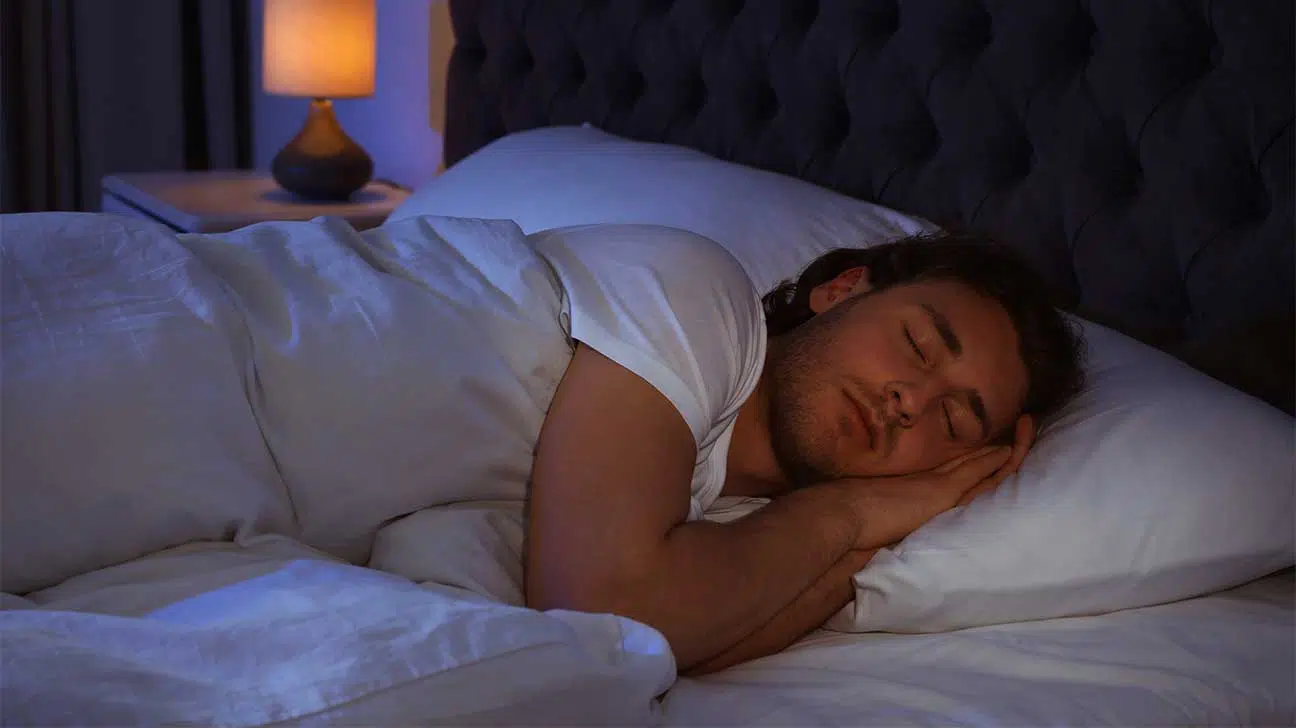
Naltrexone, also known as Vivitrol, is a medication that is commonly prescribed as part of a treatment plan for alcohol use disorder and opioid use disorder.
Various side effects, including strange or vivid dreams, can occur while taking Naltrexone tablets or receiving Vivitrol shots for opioid addiction.
Learn more about the side effects of Naltrexone
How Does Naltrexone Affect Sleep?
Naltrexone is an opioid antagonist that binds to and blocks opioid receptors. Through this action, naltrexone modulates natural endorphins in the body.
The modulation of natural endorphins, known as endogenous opioids, in the body can affect the levels of dopamine and serotonin, two neurotransmitters, in the brain.
According to some research, increases in serotonin and dopamine that are caused by medications like naltrexone or certain antidepressants, may cause more intense dreams.
Common sleep-related effects of naltrexone include:
- increased vividness of dreams
- nightmares
- insomnia (difficulty falling or staying asleep)
- sleepiness
Sleep-related effects of naltrexone, such as vivid dreams, may not last for the duration of a person’s treatment. For some people, this effect may last only for a few days.
If this issue persists, however, and becomes a deterrent to continued treatment, consider talking to your doctor about suggestions for managing sleep-related concerns.
Factors That Can Affect Naltrexone Effects On Sleep
Not everyone who takes naltrexone for alcohol addiction or opioid use disorder may experience significant disruptions to their sleep cycle or the quality of their sleep.
Vivid dreaming is more likely in people who are taking higher doses of naltrexone and those who have a history of insomnia or poor sleep quality.
Furthermore, vivid dreams can also be influenced by personal factors, such as stress, the use of other medications, mental health issues, and longer periods of rapid eye movement (REM) sleep.
What Can Help With Weird Dreams While Taking Naltrexone?
Quality of sleep, and the types of dreams people have, can be influenced by a range of factors—some of which may be out of one’s immediate control.
Feelings of nervousness, anxiety, or major changes in a person’s life—such as seeking help for drug or alcohol abuse—may affect a person’s sleep.
What may help address sleep disturbances while taking naltrexone:
- meditation or relaxation techniques
- cognitive behavioral therapy
- regular physical activity
- biofeedback
- muscle relaxation
- stress reduction
- maintaining a regular sleep schedule
Sleep disturbances may often occur as a result of other stressors in a person’s life or poor sleep hygiene. Addressing these co-occurring issues may help improve sleep in addiction recovery.
Call Today To Learn More About Naltrexone Treatment
Naltrexone is a medication that can effectively reduce cravings for alcohol and opioid drugs (including heroin) in recovery from addiction.
Although sleep disturbances can occur with naltrexone, this may be managed through a treatment plan that offers treatments like behavioral therapy in addition to medication.
For more information about naltrexone, drug side effects, or how to find naltrexone treatment for addiction near you, call our helpline to speak to one of our staff today.
Addiction Resource aims to provide only the most current, accurate information in regards to addiction and addiction treatment, which means we only reference the most credible sources available.
These include peer-reviewed journals, government entities and academic institutions, and leaders in addiction healthcare and advocacy. Learn more about how we safeguard our content by viewing our editorial policy.
- MDEdge — Anti-inflammatory effects of low-dose naltrexone, plus morning and evening skin protection
https://www.mdedge.com/podcasts/dermatology-weekly/anti-inflammatory-effects-low-dose-naltrexone-plus-morning-and-evening - Substance Abuse and Mental Health Services Administration (SAMHSA) — Naltrexone
https://www.samhsa.gov/medication-assisted-treatment/medications-counseling-related-conditions/naltrexone - Substance Abuse and Mental Health Services Administration (SAMHSA) — Treating Sleep Problems of People in Recovery from Substance Use Disorders
https://store.samhsa.gov/sites/default/files/d7/priv/sma14-4859.pdf - U.S. National Library of Medicine — Sleep and the Pharmacology of Alcohol Use Disorder: Unfortunate Bedfellows. A Systematic Review With Meta-Analysis
https://pubmed.ncbi.nlm.nih.gov/31680952/


